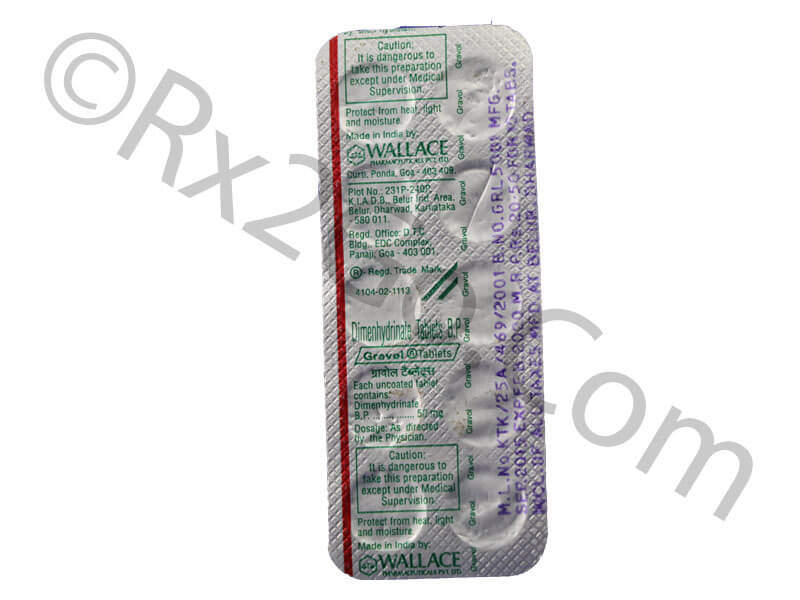Medication Useful in the Treatment of Nausea, Vomiting and Motion Sickness

Nausea & Vomiting: – Nausea and Vomiting are not the diseases. They are the symptoms of many different conditions that lead to a disease. Vomiting is a condition that causes to expel the contents of the stomach through the mouth. Nausea is a feeling that you might vomit. They are developed by a number of physical or mental conditions.
Dimenhydrinate is useful in the treatment of Nausea, Vomiting and motion sickness.
How do Dimenhydrinate works?
It is in the group of medication called anti-emetic drugs. The drug affects the vomiting Center in the brain. It is an anti-histamine. It is a combination of two drugs.
- Anti-emetic action: – The drug stimulates chemo-receptor trigger zone (CTZ). This stimulates the vomiting center in the brain. Thus it reduces the effect of natural chemical histamine in the body.
- Anti-allergic action: – It shows central sedative action. It modulates signal within the central nervous system. Thus it calms a patient to make them sleep.
What are the uses of Dimenhydrinate?
- Dimenhydrinate treats nausea, Vomiting, and dizziness caused due to following reasons.
- Motion sickness.
- Spinning sensation due to Meniere’s disease.
- Treatment of ear congestion.
- Chemo-therapy.
- Radiation.
- Surgery.
- Drug-induced nausea and vomiting.
- It helps relax and fall asleep.
- Prevents problems with body balance.
How to take Dimenhydrinate?
Dimenhydrinate is available in the form of a tablet of strength 50 mg.
- Adult: –
- Usual Dose: – 25-50 mg every 4 to 6 hours.
- Maximum dose: – 400 mg per day.
- Children: –
- Under 2 years of age – not recommended.
- 2 to 5 years – 12.5 mg to 25 mg every 6 to 8 hours.
- Maximum dose – 75 mg per day.
- 6 to 11 years – 25 to 50 mg every 6 to 8 hours.
- Maximum dose – 150 mg per day.
- 12 years and above – as per adult dose.
- The dosage depends on,
- Age
- Condition
The response of the patient to the dose.
- Comment:
Your doctor can adjust the dose as needed. Single dose should not exceed over 100 mg. Over dose can cause adverse reactions like sedation, tightening of chest etc.
What are the precautions in taking Dimenhydrinate?
Inform your doctor about any certain medical condition that you suffer. Inform him if you are/have,
- Breathing problems.
- Heart problems.
- Liver disease.
- Seizures.
- Overactive thyroid.
- Difficulty urinating.
- Stomach or intestine problem.
- High pressure in the eye (Glaucoma).
- Allergy to the above drug.
- Any other allergies.
- Inform your doctor prior to dental or any other surgery.
- Confirm its need to use in pregnancy and while breastfeeding.
- Tell your doctor regarding all other medicines you take.
Cost of Dimenhydrinate (Generic and Brand).
Generic and Brand medicines contain the same basic active ingredient. So they show the same effect. They differ in their cost. Brand medicines are costlier. They include various expenditures. This increase the cost of medicines. Generic medicines provide a cheap and effective source of medication.
- Cost of Generic Dimenhydrinate.
-Pack of 100 tablets of 50 mg costs $ 10.99.
-Cost of single unit is $ 0.11.
- Cost of Brand Driminate.
-Pack of 12 tablets of 50 mg cost $ 9.61.
-Cost of per unit is $ 0.80.



